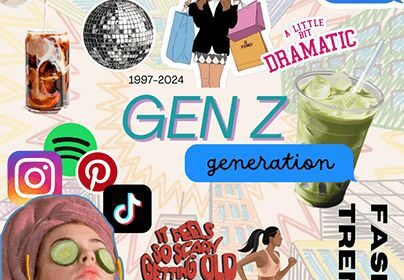In less than 12 hours, a 21-year-old founder transformed an Instagram teaser into a six-figure sellout. No celebrity endorsements. No paid ads. Just a community, a mission, and a moment. The story of this young entrepreneur isn’t an exception, it’s a blueprint for how Gen Z brands are rewriting the rules of business.
From water bottle startups to vegan skincare to digital collectibles, a new generation of founders are showing that viral success isn’t luck, it’s architecture. Their formula combines authenticity, scarcity, and digital storytelling in ways that make traditional marketing feel archaic.

Building a Brand in the Age of Attention
Today’s consumer doesn’t just buy products, they buy presence. For Gen Z entrepreneurs, brand-building isn’t about glossy campaigns but about genuine community connection.
In a 2025 Deloitte survey, 62% of Gen Z consumers said they’re more likely to buy from a brand that “feels like a friend.” That insight powered the young founder’s strategy: instead of launching with a product, they launched with a story.
A series of cryptic Instagram posts led followers on a breadcrumb trail, culminating in a website countdown. When the “drop” finally went live, inventory vanished in hours. The founder later revealed that every image, word, and timing cue had been tested through polls and DMs, a digital co-creation process that gave the community ownership in the outcome.
“I never told people what to buy, I asked them what they wanted to see,” the founder told Bidaya.
The Psychology of Selling Out
Scarcity marketing isn’t new, but Gen Z wields it differently. Where luxury houses once used limited editions to build exclusivity, young founders use it to build belonging.
Take the case of Chamber, a streetwear brand started by two 20-year-olds in London. They sell only 50 units per drop but every buyer gets invited to a private Discord community where design ideas are voted on in real time. The result? A 300% repeat purchase rate and cult-like engagement.
Harvard Business Review calls this the “participation premium” the emotional lift consumers feel when they’re part of the creative process. For this 21-year-old founder, that premium was priceless. Within hours of selling out, resale listings appeared online for double the retail price, proof that emotional equity had turned into economic value.
Content Is Capital: The New Media Mindset
In Gen Z entrepreneurship, every brand is a media company first. The 21-year-old’s strategy reflected this perfectly. The product a minimalist streetwear capsule was secondary. The real value lay in how it was documented.
Instead of a campaign shoot, the founder filmed candid behind-the-scenes footage: sourcing fabrics, arguing over font choices, packaging orders by hand. Those clips became viral content across TikTok and YouTube Shorts, racking up over 3 million views in three days.
“Transparency is the new luxury,” said trend analyst Sarah Kim of FutureCommerce. “Young founders don’t hide the process, they turn it into the product.”
That shift is why platforms like TikTok Shop and Instagram Checkout are redefining retail. For this founder, 70% of traffic came directly from social media, bypassing traditional e-commerce entirely.
Lessons for Established Brands
Legacy companies are paying attention. Nike, L’Oréal, and PepsiCo have all launched Gen Z incubators in 2025 focused on micro-brand agility. The old model big ad budgets and multi-quarter rollouts is being replaced by microdrops, creator-led launches, and community-first testing.
The 21-year-old’s story underscores three lessons for legacy players:
- Speed beats scale. Testing ideas fast and publicly builds momentum.
- Community equals currency. A loyal 5,000-person following can outperform a million passive followers.
- Authenticity is the algorithm. Platforms reward raw storytelling, not polished ads.
What’s Next: The Rise of the “One-Day Brand”
The future may belong to one-day brands pop-up ventures built for momentary impact but long-term influence. These ephemeral brands sell out, vanish, and reappear with something new mirroring Gen Z’s preference for evolution over permanence.
As the founder prepares for their next drop, the takeaway is clear: success in 2025 isn’t about being everywhere. It’s about being irresistible for one powerful moment.
“It’s not about going viral,” the founder said. “It’s about being remembered.”






